Impact of HR Practices on Employee Retention in Hospitality Sector
VerifiedAdded on 2023/06/11
|5
|847
|464
Report
AI Summary
This report discusses three key proposals related to human resources in the hospitality industry. The first proposal examines how HR best practices can influence employee retention in the Middle East, highlighting the challenges organizations face in retaining competent employees due to market competition and the high costs associated with recruitment and training. The second proposal focuses on the benefits of creating a coaching culture in the hospitality industry, emphasizing the importance of positive communication and the role of coaching in enhancing relationships between leaders and employees. The third proposal explores the impact of training on productivity in the Middle East's hospitality industry, defining training as a systematic process for improving employee behavior, motivation, and knowledge to achieve organizational goals. The report references academic articles to support its arguments.
1 out of 5
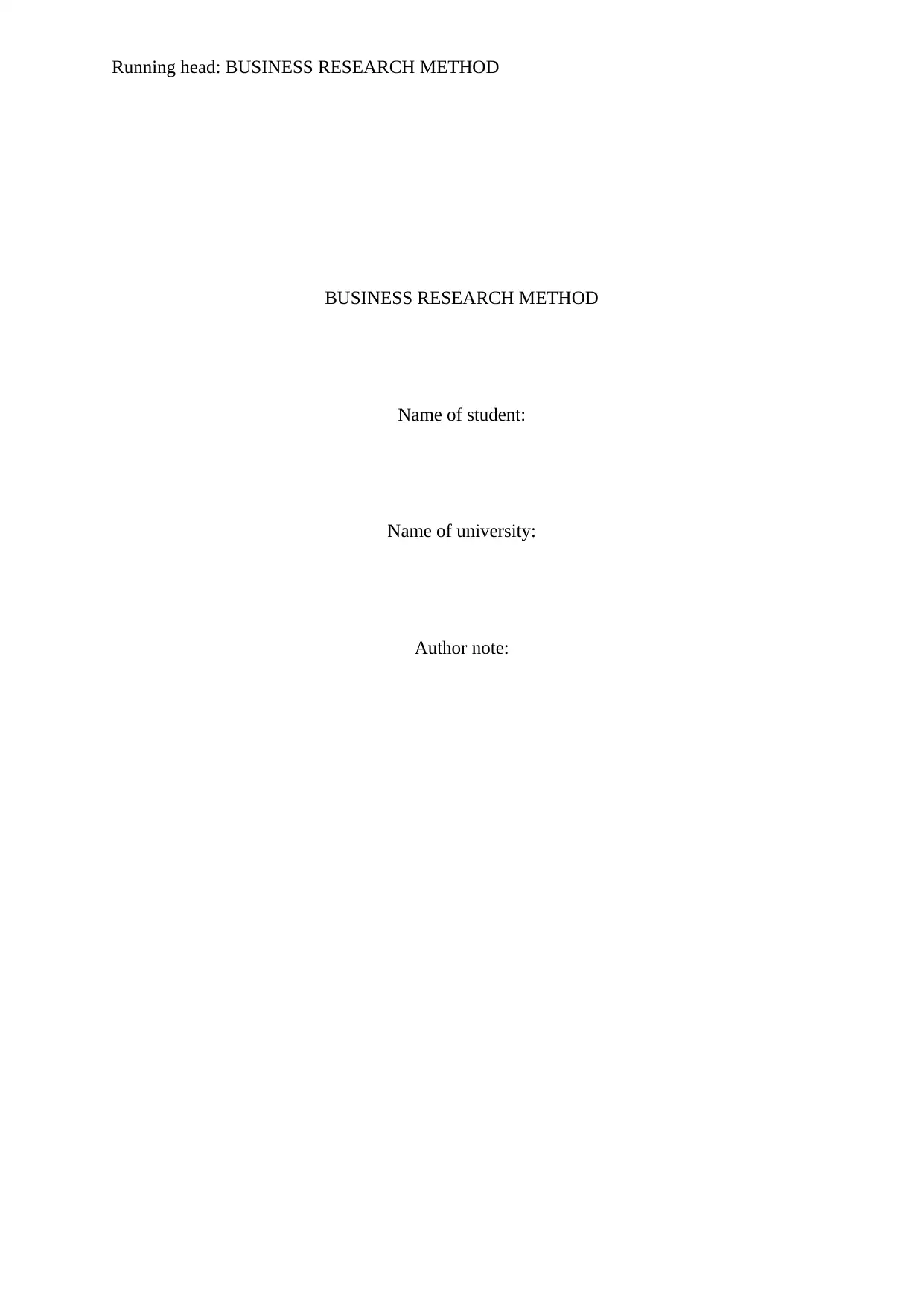
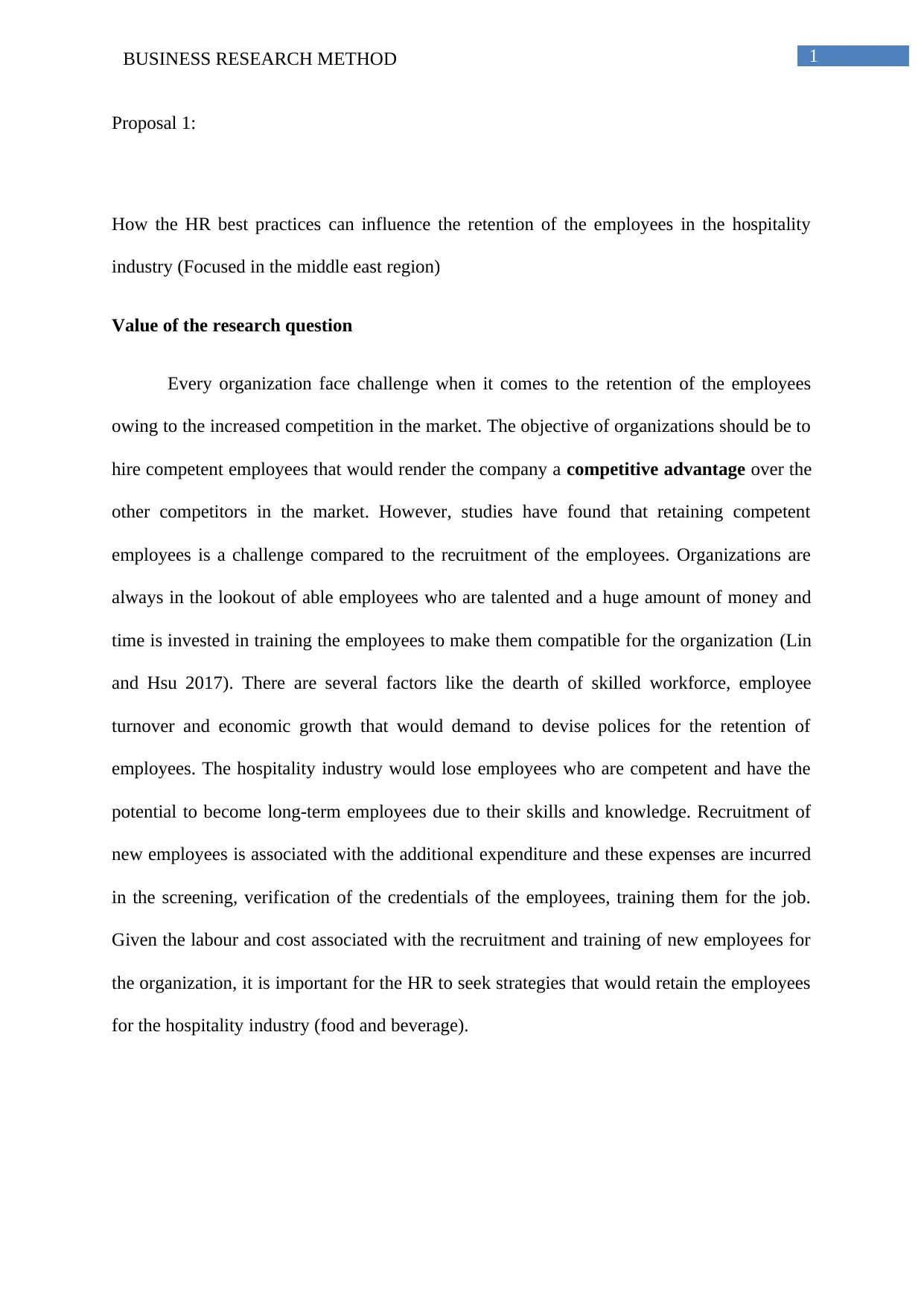
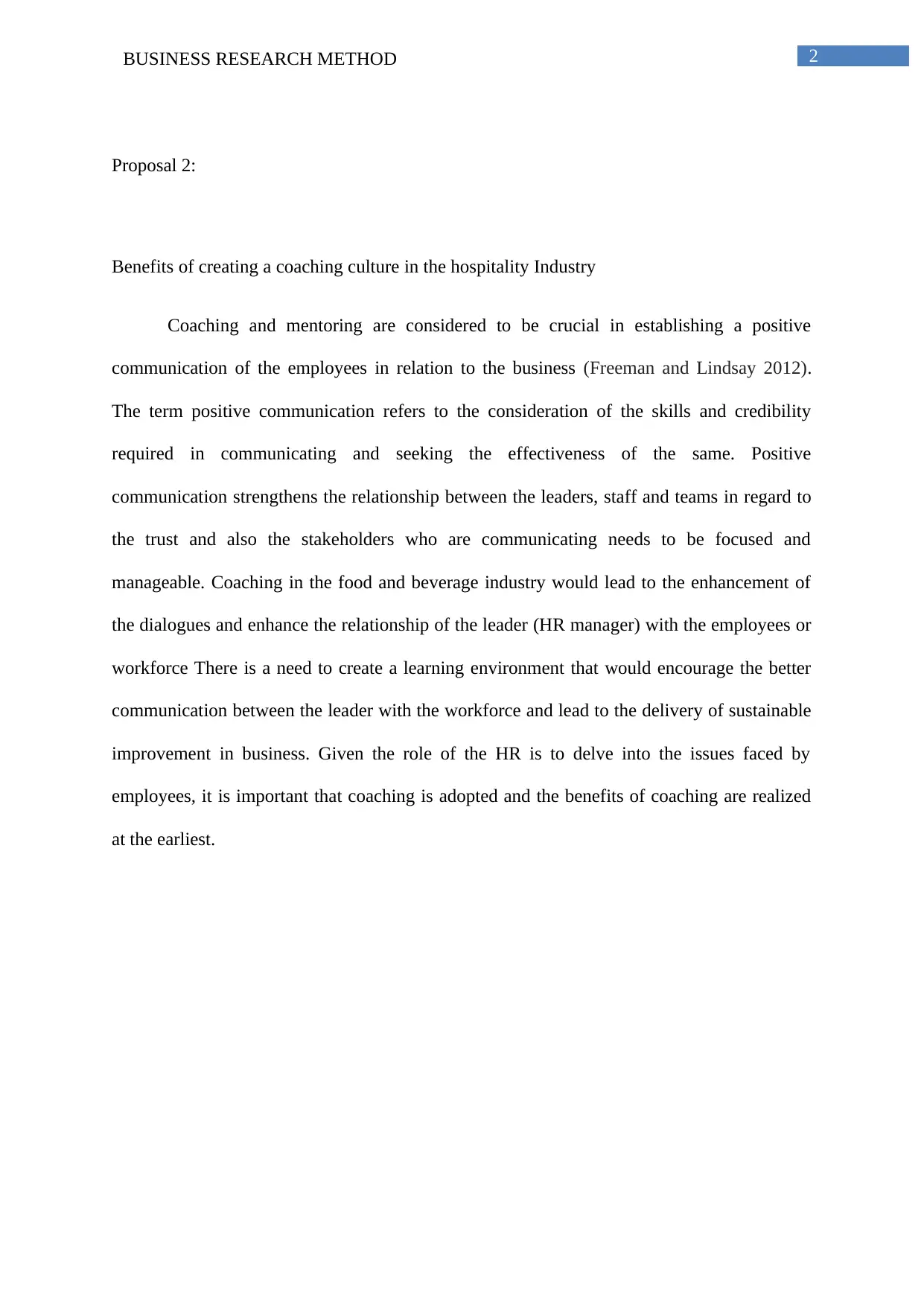

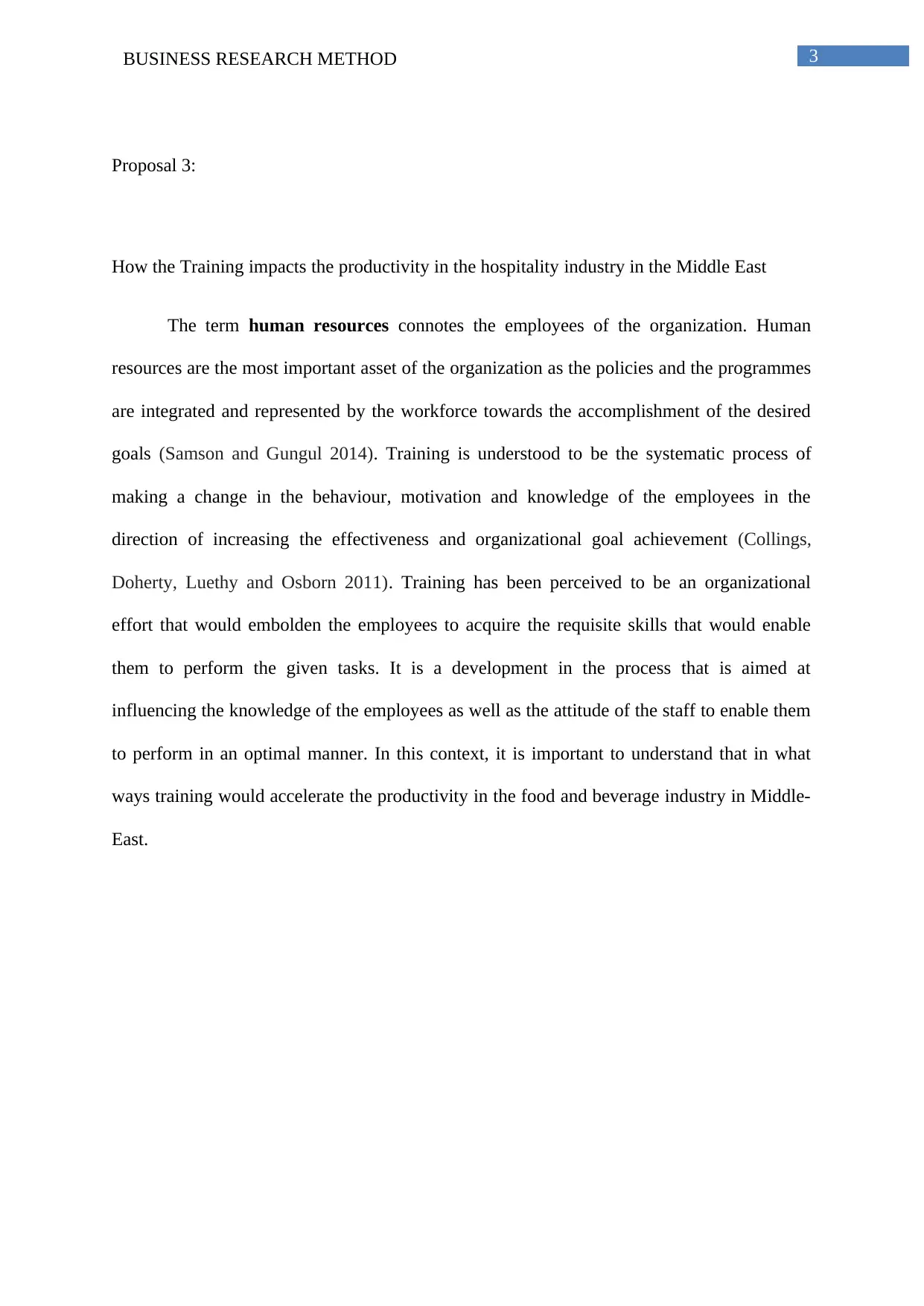
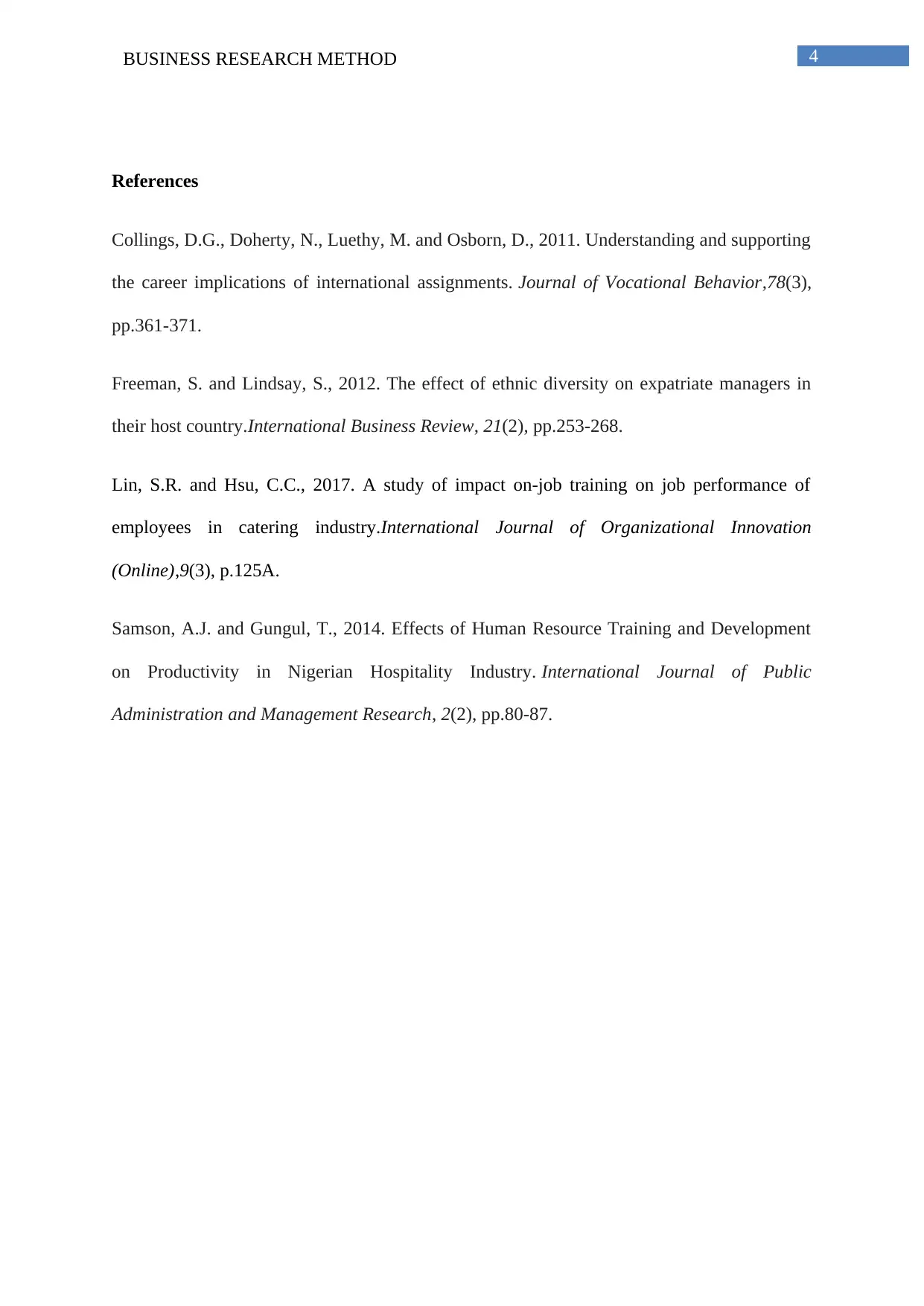






![[object Object]](/_next/static/media/star-bottom.7253800d.svg)